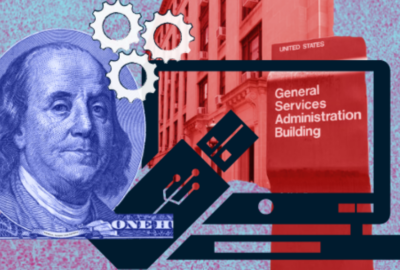Elections, debt limit reset are sources of uncertainty for federal contractors
National elections, debt limit reset, budget caps, workforce shortages and the slowing pace of contracting will all affect federal contracts this year.
National elections, debt limit reset, budget caps, workforce shortages and the pace of contracting are just some of the sources of uncertainty the federal contracting industry faces this year.
With the presidential election fast approaching and the House and Senate majorities being on the line, there are a lot of uncertainties for federal contractors and the way they will interact with their programs after November 5.
“There are eight distinct possibilities that can come out of this election. It’s not just a Democrat or Republican in the White House. It’s a majority of Democrats or Republicans in the Senate. It’s a majority of Democrats or Republicans in the House and the nature of the activities that are likely to come out, the priorities, the objectives, and even the arrangement of funding within that will be very different under one of these possible outcomes than it is under the other possible outcomes,” David Berteau, the President and CEO of the Professional Services Council, said during the Federal Acquisition Conference Thursday.
As elections approach, political appointees start to leave their positions, which usually doesn’t significantly impact ongoing projects, but new programs requiring high-level approval tend to face delays. In addition, it is challenging for political appointees to initiate or complete new projects in the final year of a term.
2024 being an election year also adds complexity to negotiating the 2025 budget, and it is “almost a guarantee” that the federal agencies will start a new fiscal year under a continuing resolution.
“I’m pretty sure the odds would be quite high on that one. It’s most likely that a [continuing resolution] will be for a short period of time. It’ll get us past the election. But before Christmas, there may be another CR and there may be another one after that,” said Berteau.
There is another level of uncertainty here. Last year’s debt limit deal suspends the debt ceiling until January 1, 2025, so it will be reset right before a new Congress is sworn in.
The U.S. Treasury will most likely invoke extraordinary measures before January 1 to avoid the risk of default in 2025. And while the Treasury Department’s use of extraordinary measures provided about four and a half months of additional time to prevent a default last year, increased interest rates and higher monthly debt payments will most likely get the federal government to a place of default much faster in 2025.
“We don’t know how long extraordinary measures will buy us time in 2025. My suspicion is that because interest rates have gone up so much, and T-bills that are being renewed now are being renewed at much higher interest rates than they were originally issued for whether they’re two year bills, or 10 year bills, or five year bills. And if you look at the Treasury Department’s outlays, you’ll see that payment on the debt is a lot more on a monthly basis than it was even a year ago. And so it’s likely that we will reach default day earlier in the process than the four and a half months we had just last year,” said Berteau.
It’s not the renewal rates of Treasury bills but the government’s response to potential default that will affect federal contractors and portions of their businesses.
“Government plans in default were to treat it as if it were a government shutdown – start issuing stop-work orders. Our view— we put this in writing, we made this clear to the Office of Management Budget, as well as to the media, is that it is the least effective and worst thing you can do in the event of a default,” said Berteau.
“As we get closer to default date, we’re also going to advocate setting the debt limit a long ways out and forgetting it so we don’t have to go through this every year or two.”
Copyright © 2025 Federal News Network. All rights reserved. This website is not intended for users located within the European Economic Area.






